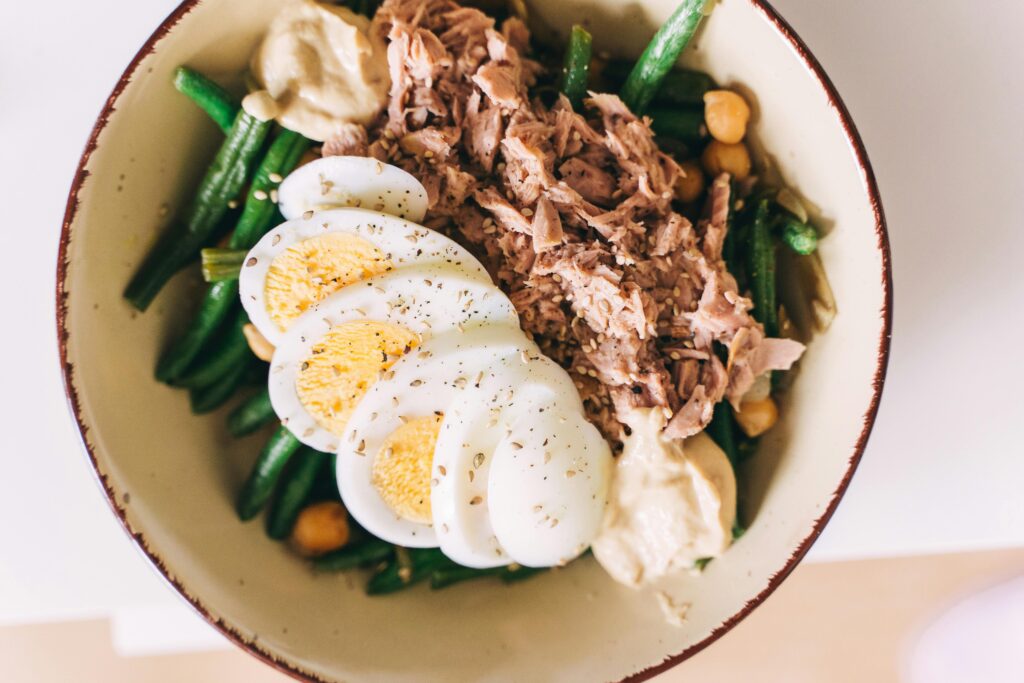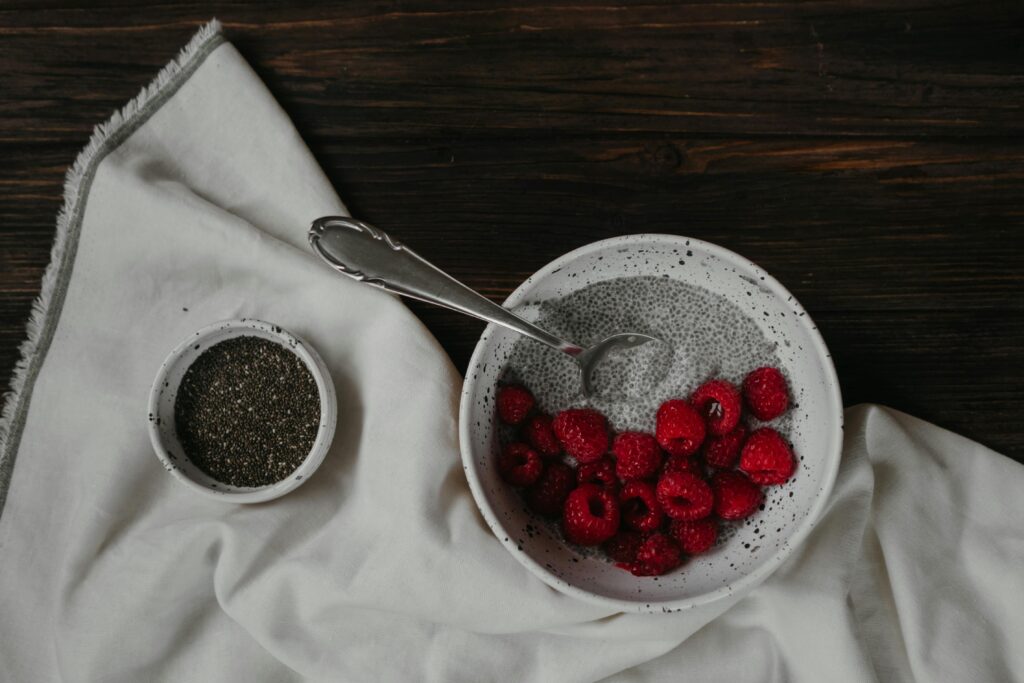You might be wondering if it’s preferable to eat before or after an exercise because proper nutrition is crucial when exercising.
In general, your intended workout, any underlying health issues, and your own fitness goals may all influence when you should eat.
Prior to exercise, combining carbohydrates and protein can enhance both performance and recuperation. It’s also critical to stay hydrated, and some supplements, such as creatine or caffeine, may help.

Prior to: Fill up!
It’s like driving a car on empty if you don’t fill up before working out.
- Drinking water to stay hydrated.
- Consuming whole-grain cereals (with low-fat or fat-free milk), whole-wheat bread, low-fat or fat-free yogurt, brown rice, whole-grain pasta, and fruits and vegetables are all good sources of healthy carbs.
- Avoiding any proteins, including healthy ones, and saturated fats. These kinds of energy take longer to absorb in your stomach. In order to facilitate digestion, this removes blood that carries oxygen and energy from your muscles.
Have a piece of fresh fruit, like an apple or banana, five to ten minutes before doing out.
During: Take a break.
Small, frequent sips of water will help your body stay hydrated, regardless of whether you’re a professional athlete who exercises for hours on end or you follow a low-to-moderate regimen.
When working out for an hour or less, you don’t have to eat. However, you should have 30 to 90 grams of carbs every hour, such as from a banana, low-fat yogurt, or raisins, for longer, more intense workouts.

In the middle of your workout, think about refueling.
You can extend your endurance and keep your timing and focus during longer workouts by eating some carbohydrates.
This is particularly crucial for stop-and-go sports like basketball, tennis, or soccer, as well as for training sessions or competitions that go longer than sixty to ninety minutes. Sports gels, a spoonful of honey, and a few jelly beans or gummy bears are some other snack options to think about when exercising.
(During halftime, you should have 15 to 25 grams of carbs; for endurance events like marathons or long-distance cycling, you should consume up to 90 grams of carbohydrates every hour.)
Consuming a small amount of protein before or during weightlifting exercises may aid in the development of muscle.

Learning what and when to eat before and after exercise can be a little overwhelming. The questions to consider are endless: Should you eat before you exercise? Low-carb? Simple carbs? High-fat or low-fat? What about after your workout? What if you’re trying to lose weight? What if you take insulin?
You might burn more body fat for energy when you exercise on an empty stomach.
When you eat right before exercising, your body is going to first use the calories you just consumed for fuel. By exercising when it’s been about three to four hours since you last ate, your body is more able to burn fat for fuel because other easier methods of fuel aren’t available. Remember, before exercising, check your glucose levels to make sure you’re within a safe range to do so—about 100 to 180 mg/dL.
This can be a very helpful weight-loss tool because regardless of how many calories you burn during your workout, you’re ensuring that you’re burning more body fat for fuel.
Fasted Exercise Improves Your Body’s Capacity to Burn Fat for Energy
Carbohydrates and body fat are the main fuel sources for your body. Whereas carbohydrates are stored in your muscles and liver as a molecule known as glycogen, fat is stored in fat tissue as triglycerides.

When you really should eat after your workout
Eating a meal or protein shake within an hour of working out is crucial for certain kinds of activity.
The following exercise types may necessitate an instant post-workout protein shake or meal:
- Lifting weights
- Interval training at a high intensity
- Training for endurance
- Any vigorous activity lasting longer than sixty minutes
- Extremely competitive sports
If you don’t eat a substantial meal or post-workout protein shake after high intensity exercise, a few issues are of concern:
- Your muscles aren’t getting the amino acids they require to repair and recuperate.
- Further muscle breakdown may result from your failure to restore the glucose (glycogen) that has been stored in your muscles.
- You’ll get hungry a few hours later and likely overeat at that later meal.
Intense training requires proper fuel. Eating every three to four hours throughout the day and eating post-workout is an important part of supporting your body.

Do not forget to drink plenty of water.
It’s just as crucial to stay hydrated during your workout as it is to stay fueled. The length of time you intend to work out and the temperature are two important considerations when determining how much water you should consume.
Before you begin your workout, it’s generally necessary to make sure you are properly hydrated. The majority of specialists advise consuming four to eight ounces of fluid for every fifteen to twenty minutes of exercise during your session. How hard you work out and how much you perspire will determine how much.

Water is the most effective approach for many exercisers to stay hydrated. Nonetheless, sports drinks can supply electrolytes like sodium if your training is strenuous or lasts more than ninety minutes.
Above all, make sure to check your blood sugar levels before doing out and always have fast-acting carbs on hand (such as juice, gummy candy, or glucose pills) in case your blood sugar drops. To avoid lows before and after exercise, discuss with your doctor modifying your insulin dosage or other prescriptions.